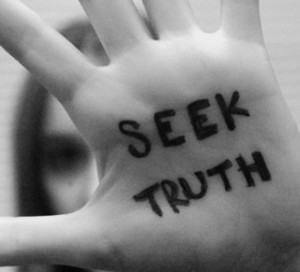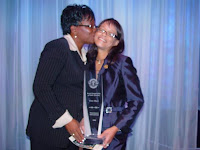The five weeks between Oct 21 and Nov 24 were the busiest speaking weeks I've had since working for the student travel company, Ambassador Programs, a few years back.
I've scaled back my speaking considerably since spending such a high percentage of my time away from my family in that particular job, and focused on coaching emerging speakers to discover, develop, & deliver their keynotes, as well as work with Toastmasters speech contestants. With six kids, three of whom are battling with significant medical challenges, this has been the 'Win Anyway' choice for me.
When several opportunities came up this Winter that I found I could justify taking time for, they reminded me, at least for a little while, what it feels like to be a working speaker again, not just a working coach.
A few lessons learned, re-learned, and/or reinforced:
A.
Roll With The Punches. You can't control everything, and often not even what you thought you could control.
Even if you type introductions, even if you talk to your introducer before time. Even if you give specific time instructions. Whenever you put timing, introductions, room setup, microphone and projector tech, back-of-the-room sales, etc., in the hands of someone else, you never know what you're going to get. Sometimes the results are exactly what you want, other times, you just want to tear your hair out.
I had some fantastic results and some not-so-fantastic results over this time - and nothing so bad as to render the presentation a failure occurred. Just remember that everyone is typically looking to help you create your best result, for yourself and for them - so act in good humor and with great patience.
B.
Always Dress Like You'll Be At The Head Table. Because the one time you don't, you'll walk into the evening dinner and there your name-tag will be.
C.
Don't Forget Your Chargers. Seriously - such a simple mistake, but it cost me a weekend of reviewable videos of myself, and potential testimonials. If possible, have a USB backup. This goes for phones, laptops, cameras - anything that takes power, of course.
D.1
People Want to Hear You. You're there because the organizer wanted their audience to hear your message - your audience is there hoping you're going to give them something worth hearing.
D.2
Connect. You don't have to win over your audience - it's not an argument. Just connect with them. Make them laugh in the first 30 to 60 seconds. Better yet, in your introduction. Find common ground, so you're not perceived as thinking you're above them. Look your introducer in the eye if they shake your hand, and do the same with your audience before you start talking - let your emcee sit down as you do so.
E.
Standing Ovations Mean Nothing and Everything. You'll know the difference if you know your audience and message. Some standing O's come out of tradition and respect, others come out of emotion and gratitude. Don't tie your success or failure to them - just appreciate the moment, and acknowledge it by not just walking off-stage immediately, or at least stopping midway on your way out to take a quick bow, nod or wave. They want to know you care that they care.
F.
Don't Underestimate Their Willingness to Bring You Home With Them. At least your books, etc. I sold out of all my materials in Toronto, and could have easily brought more books, as well as my two audio products with me. I still have a few to send out this week to people who bought on a last-minute voucher system. Despite my years as a salesman, or maybe because of, I hesitate to look like I'm all about hawking my product. But the people who left my table with nothing because I didn't bring enough don't want to hear that.
G.
Always Be Ready To Speak. Not just earlier in the program than you thought, but on occasions you might be spontaneously introduced to say a few words because you're at the head table. And not dressed for it...
H.
Your Body Won't Always Cooperate. Travel, in general, is exhausting. For me, between my leg, my back, my Sciatica, and my bad eyes, it's a wonder I can even operate in the real world. I woke up several days in Toronto unable to walk in the morning more than a step or two. The show had to go on, though, and it did. For you, it might be an onset of the flu, or laryngitis, a fall on the ice - who knows. We're frail creatures. But unless you're bleeding out, you can typically find your way to the stage, and your message will find its way to its audience.
I.
Power Point is Overrated, but Still Tempting. Of all the presentations I gave, the least successful involved PowerPoint. Maybe it is my own comfort level, my own disdain for the program with my own presentations. (Some of my clients use Power Point, and we get tremendous results.) But for the more motivational style of what I do, it is just typically unnecessary. Then I hear someone talk about learning styles, and I start to wonder about it all over again.
J.
I Still Get Nervous. I wrote a post about this in October - specifically with the contest process in Toastmasters - but I still get nervous in the 'real world' too. Not shaky or short of breath - but anxious about my content, my humor, and pretty much everything around the event. I doubt, however, many in my audience would know that. I would like to get my content down to the point that I'm not still reviewing even an outline during dessert...
K.
The Most Important Result. For me it's still the one person out of 20, or 200, who comes up and says they needed to hear what I had to say that night. Who tells me I've changed their thinking, encouraged them, or given them a new tool. That one person who says something usually represents a much larger group of those who will never tell you - but even if they don't, and you've touched just that one single person, it's better than if you stayed home and watched Blacklist, right? Right.
Those are some of the best lessons I learned/relearned/reinforced that might help you going forward. There are also a couple of additional tidbits just for me - like the thought that I still really enjoy being on the road and speaking. With my kids getting a bit older, and a little more stability creeping in on the health front
(knock on wood), I might need to get out there more.
I also re-learned that I have something of value to give to my audiences, whether I'm training them to Speak Anyway, or sharing a Tall Tale on the District Stage, giving a workshop on Evaluation Skills or how to take your Toastmasters experience to a higher level, or giving my Win Anyway & Lead Anyway Keynotes. When we sit on the sidelines long enough, doubt can creep in.
So don't sit. Get out there and Speak - & Deliver.



















